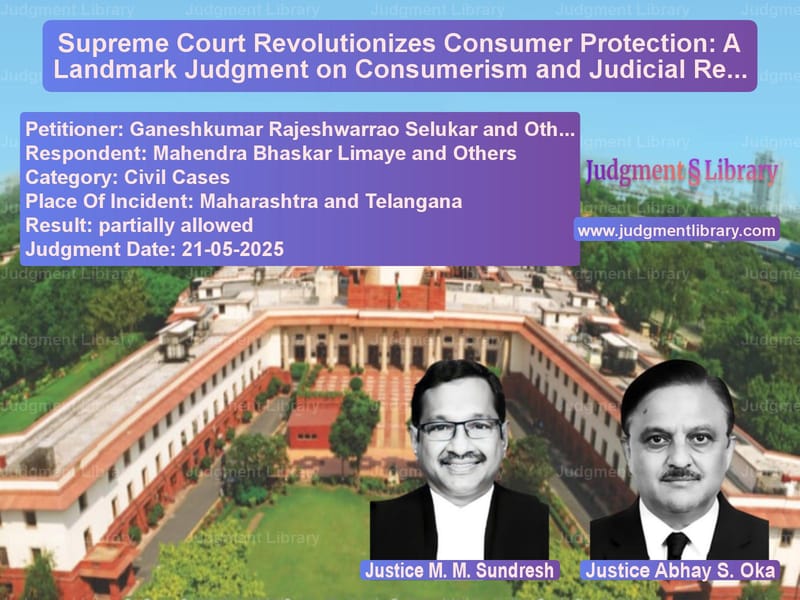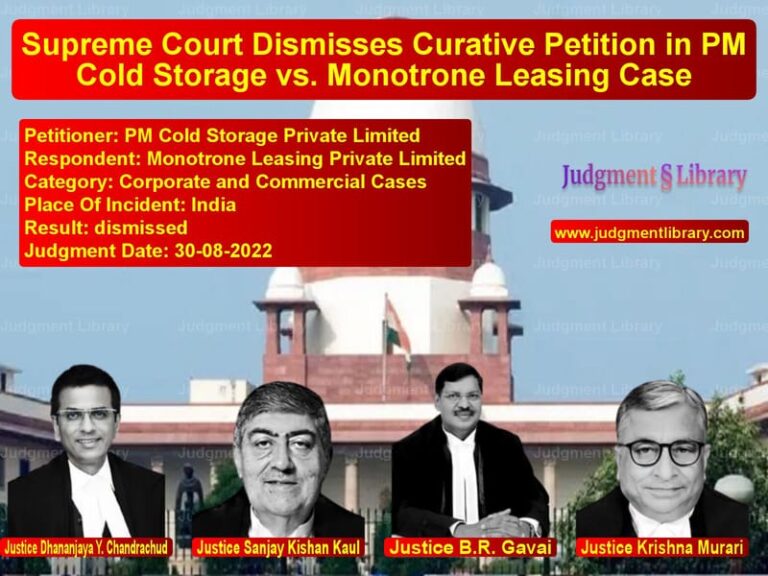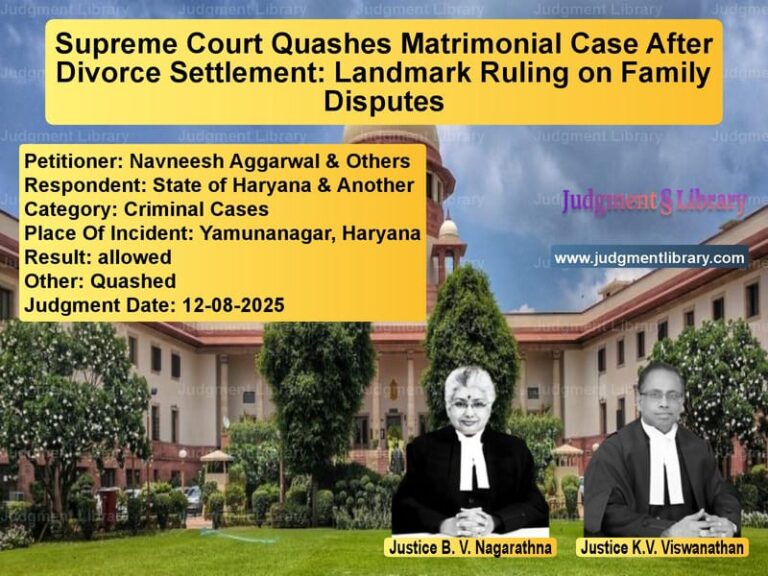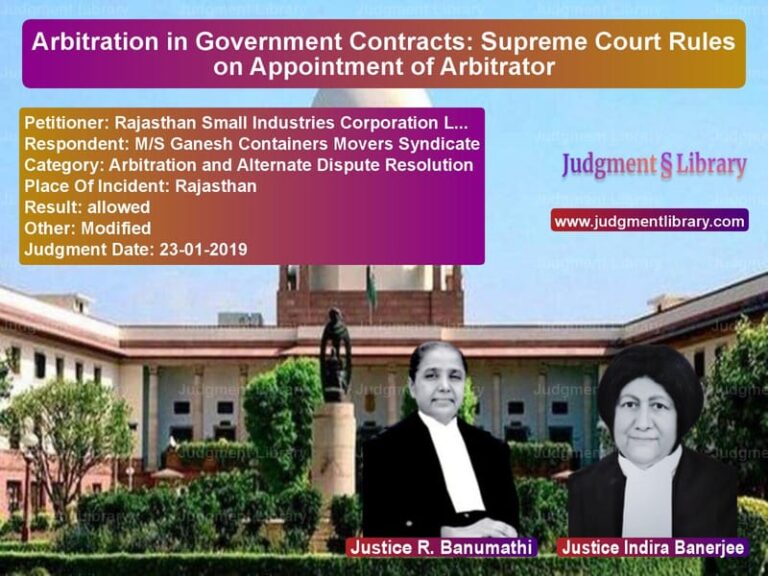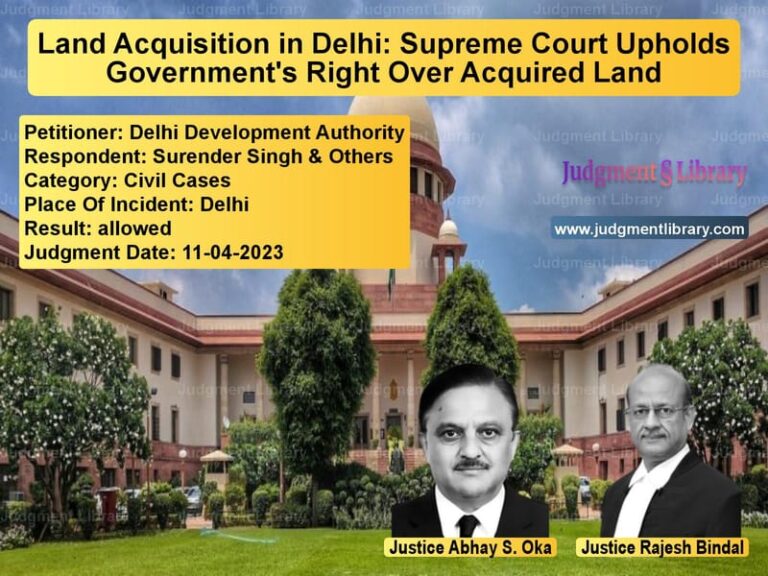Supreme Court Revolutionizes Consumer Protection: A Landmark Judgment on Consumerism and Judicial Reforms
In a landmark judgment that could reshape the landscape of consumer rights in India, the Supreme Court has delivered a powerful verdict emphasizing the profound connection between consumerism and constitutional values. The case, which involved multiple civil appeals and review petitions, primarily centered around the appointment and functioning of consumer dispute redressal forums. However, the Court used this opportunity to delve deep into the philosophical, historical, and constitutional foundations of consumer protection in India.
The judgment begins with a profound reflection on the nature of consumption itself. Justice M. M. Sundresh, writing for the bench, observed that consumption begins even before birth and continues beyond death. “Man is what he consumes. It is generally stated that one becomes a consumer from the time of his birth but, in reality, the journey begins much earlier. It extends from before the cradle to beyond the grave. A mother and her child are inseparable in the womb. Medical treatment received and commodities consumed by the mother, such as food, water, medicine, etc., enure to her child. Consumption is shared between the two, making them joint consumers.”
The Court traced the evolution of consumerism through Indian history, noting how ancient kings were duty-bound to ensure fair transactions between traders and consumers. This historical perspective was then connected to India’s freedom struggle, with the Court remarkably characterizing the Indian Independence Movement as essentially a citizen-consumer movement. The judgment quoted Mahatma Gandhi’s powerful words about the importance of consumers: “A customer is the most important visitor on our premises. He is not dependent on us. We are dependent on him. He is not an interruption on our work. He is the purpose of it. He is not an outsider on our business. He is a part of it. We are not doing him a favour by serving him. He is doing us a favour by giving us an opportunity to do so.”
The Court extensively discussed how consumerism forms the very spirit of the Indian Constitution, connecting it to fundamental rights, directive principles, and the vision of social democracy articulated by Dr. B.R. Ambedkar. The judgment emphasized that consumer rights are not merely statutory guarantees but natural and inalienable rights that flow from our constitutional framework.
The Constitutional Foundation of Consumer Rights
The Court elaborated on how consumerism intersects with various aspects of constitutional governance. It discussed the relationship between consumerism and public interest, noting that even when a consumer seeks to redress an individual grievance, the benefit often enures to the public at large. The judgment cited the famous “snail in the bottle case” – M’Alister (Or Donoghue) (Pauper) v. Stevenson – as a foundational moment in consumer protection jurisprudence that established the principle of ‘duty of care.’
The Court made a significant observation about the nature of consumer litigation: “Therefore, consumer litigation is a form of public interest litigation, which builds an active citizenry, enhancing participatory democracy. Participatory democracy is one of the basic features of the Constitution. The principle of participation in the governance of the country, is not only a constitutional right, but also a human right. It is thus imperative that consumer litigation should be allowed to grow multi-fold, for a democracy to flourish.”
On the connection between consumerism and social justice, the Court observed that if there is no equality of consumption, there can be no equality of life. It highlighted how disparities in access to basic commodities and services perpetuate social inequalities, and how empowering consumerism could be an effective tool for social transformation.
The Political and Economic Dimensions of Consumerism
The judgment explored the political implications of consumer choices, noting that “the choice to consume a particular good or service, or not, reflects our political considerations.” It discussed how political manifestos are often built on consumption demands of citizens, and how consumption patterns influence policy decisions and electoral outcomes.
On the economic front, the Court described consumers as the ‘invisible hand’ of the market, whose spending decisions guide production and economic growth. It cited statistics showing India’s rapid growth as a consumer market, with projections indicating it would become the world’s third-largest consumer market by 2026.
The environmental aspect of consumerism was also addressed, with the Court discussing the concept of ‘Green Consumerism’ and its importance for sustainable development. It noted how consumer choices can drive businesses toward more sustainable practices and help achieve India’s commitments under the United Nations Sustainable Development Goals.
The Core Legal Issues and Arguments
The case before the Court involved challenges to various provisions of the Consumer Protection Rules, 2020, particularly concerning the appointment and tenure of members of consumer forums. The petitioners, including Dr. Mahendra Bhaskar Limaye and others, challenged Rules 6(1) and 10(2) of the 2020 Rules, as well as certain notifications and advertisements issued by the State of Maharashtra for appointments to consumer forums.
The petitioners argued that Rule 6(1) of the 2020 Rules suffered from executive dominance in the selection committee, violating the doctrine of separation of powers. They contended that “since the Chairperson is the sole representative of the Judiciary in the three Member Selection Committee, there is a lack of judicial dominance, which is a direct contravention of the doctrine of separation of powers and also an encroachment on the judicial domain.”
Regarding Rule 10(2), which prescribed a four-year tenure for members, the petitioners argued that this reduction from the earlier five-year term was arbitrary and against the principles established in earlier Supreme Court judgments. They also challenged the selection process, particularly the conduct of written examinations, arguing that it deviated from the directions issued by the Supreme Court in the Limaye-I case.
The Union of India, represented by Additional Solicitor General Ms. Aishwarya Bhati, defended the Rules while acknowledging the need for improvements. She submitted that “any possible contingency that might arise in giving effect to Rule 6(1) of the 2020 Rules, is taken care of by Rule 6(3) of the 2020 Rules.” On the tenure issue, she argued that “the term of office of the President and Members of the National Commission is 4 years, and therefore, there cannot be two different tenures of office within the hierarchy of Consumer fora.”
The State of Maharashtra supported the selection process it had conducted and the appointments made pursuant to it. It argued that the appointed candidates had undergone a fair selection process and should be allowed to complete their tenure.
The Court’s Analysis and Directions
The Supreme Court conducted a thorough analysis of the issues, beginning with the composition of the selection committee. The Court upheld the Bombay High Court’s decision to strike down Rule 6(1) of the 2020 Rules, agreeing that it suffered from executive dominance. The Court quoted extensively from its earlier decisions in Rojer Mathew, MBA-III, and MBA-IV, emphasizing the importance of judicial independence in appointments to quasi-judicial bodies.
The Court noted: “We are in agreement with the contentions of the learned counsel for the petitioner(s), that the lack of judicial dominance in the Search-cum-Selection Committee is in direct contravention of the doctrine of separation of powers and is an encroachment on the judicial domain. The doctrine of separation of powers has been well recognised and reinterpreted by this Court as an important facet of the basic structure of the Constitution.”
On the tenure issue, the Court similarly upheld the High Court’s decision, stating that “the striking down of Rule 10(2) of the 2020 Rules as invalid, with respect to the term of office of the President of the District Commission, and Members of the State and District Commissions, can also not be found fault with, in light of the settled position of law, on the aspect of tenure of office in special fora.”
However, the Court took a pragmatic approach regarding the appointments already made by the State of Maharashtra. Noting that 112 candidates had been appointed through a selection process and that they were not made parties to the litigation before the High Court, the Court held that these appointments should be protected. “The High Court, under Article 226 of the Constitution, is also a Court of equity and good conscience, and ought to have taken note of the fact that the selection process had almost been completed during the pendency of the writ petitions before it. Thus, we are inclined to hold that the 112 candidates appointed by the State of Maharashtra are entitled to continue and complete their tenure.”
The Court also clarified that its earlier directions in Limaye-I regarding written examinations would not apply to judicial members and presidents of consumer forums, acknowledging the practical difficulties in subjecting experienced judicial officers to written tests.
Vision for Permanent Consumer Justice System
Perhaps the most significant aspect of the judgment is the Court’s vision for a permanent and robust consumer justice system. The Court expressed concern about the temporary nature of appointments to consumer forums and emphasized the need for permanency.
The Court observed: “Since the essence of consumerism is embedded within the Constitution, there is absolutely no reason to fill up the Consumer fora with tenure-based offices for the Staff, Members and Presidents. While we leave it to the wisdom of the Union of India to revamp the existing structure with holistic changes, we would only implore upon it, to appreciate the pressing need for a permanent structure. Consumer fora can be given permanency through permanent staff and officers, including Presidents and Members at different levels.”
The Court explained the importance of permanent appointments: “The security of tenure attached to an office administering justice, enhances its efficiency and functionality. Any person appointed to an office with a fixed tenure would not be as motivated as one appointed on a permanent basis. Impermanence would affect the quality of decisions and thus, cause injury to consumers. A consumer is ideally expected to get a qualitative and timely decision from the concerned Consumer forum. Such a decision is the best advertisement for the concept of consumerism.”
Comprehensive Directions for Reform
The Court issued detailed directions under Article 142 of the Constitution to ensure comprehensive reform of the consumer justice system. These included:
The Union of India was directed to file an affidavit on the feasibility of establishing a permanent adjudicatory forum for consumer disputes, either as Consumer Tribunals or Consumer Courts, within three months.
The Court directed the Union of India to notify new Rules within four months, incorporating several key features: a five-year tenure for members as established in earlier judgments; a selection committee with judicial majority; exemption from written examinations for judicial members and presidents; and mandatory written examinations for non-judicial members conducted in consultation with state service commissions.
The Court provided detailed relief for various categories of appointed and aspiring members of consumer forums, ensuring that those who had been appointed in good faith would be protected while laying down a clear framework for future appointments.
The judgment represents a watershed moment in Indian consumer jurisprudence. By connecting consumer rights to constitutional values and envisioning a permanent, robust consumer justice system, the Supreme Court has elevated consumer protection from a mere statutory right to a fundamental aspect of constitutional democracy. The Court’s emphasis on the interconnectedness of consumerism with social justice, economic development, environmental sustainability, and political participation provides a comprehensive philosophical foundation for consumer rights that will guide future developments in this field.
As India continues its journey toward becoming one of the world’s largest consumer markets, this judgment ensures that the institutions responsible for protecting consumer rights will be strong, independent, and permanent – truly reflecting the constitutional vision of consumerism that the Court so eloquently articulated.
Petitioner Name: Ganeshkumar Rajeshwarrao Selukar and Others.Respondent Name: Mahendra Bhaskar Limaye and Others.Judgment By: Justice M. M. Sundresh, Justice Abhay S. Oka.Place Of Incident: Maharashtra and Telangana.Judgment Date: 21-05-2025.Result: partially allowed.
Don’t miss out on the full details! Download the complete judgment in PDF format below and gain valuable insights instantly!
Download Judgment: ganeshkumar-rajeshwa-vs-mahendra-bhaskar-lim-supreme-court-of-india-judgment-dated-21-05-2025.pdf
Directly Download Judgment: Directly download this Judgment
See all petitions in Consumer Rights
See all petitions in Public Interest Litigation
See all petitions in Judgment by M.M. Sundresh
See all petitions in Judgment by Abhay S. Oka
See all petitions in partially allowed
See all petitions in supreme court of India judgments May 2025
See all petitions in 2025 judgments
See all posts in Civil Cases Category
See all allowed petitions in Civil Cases Category
See all Dismissed petitions in Civil Cases Category
See all partially allowed petitions in Civil Cases Category

